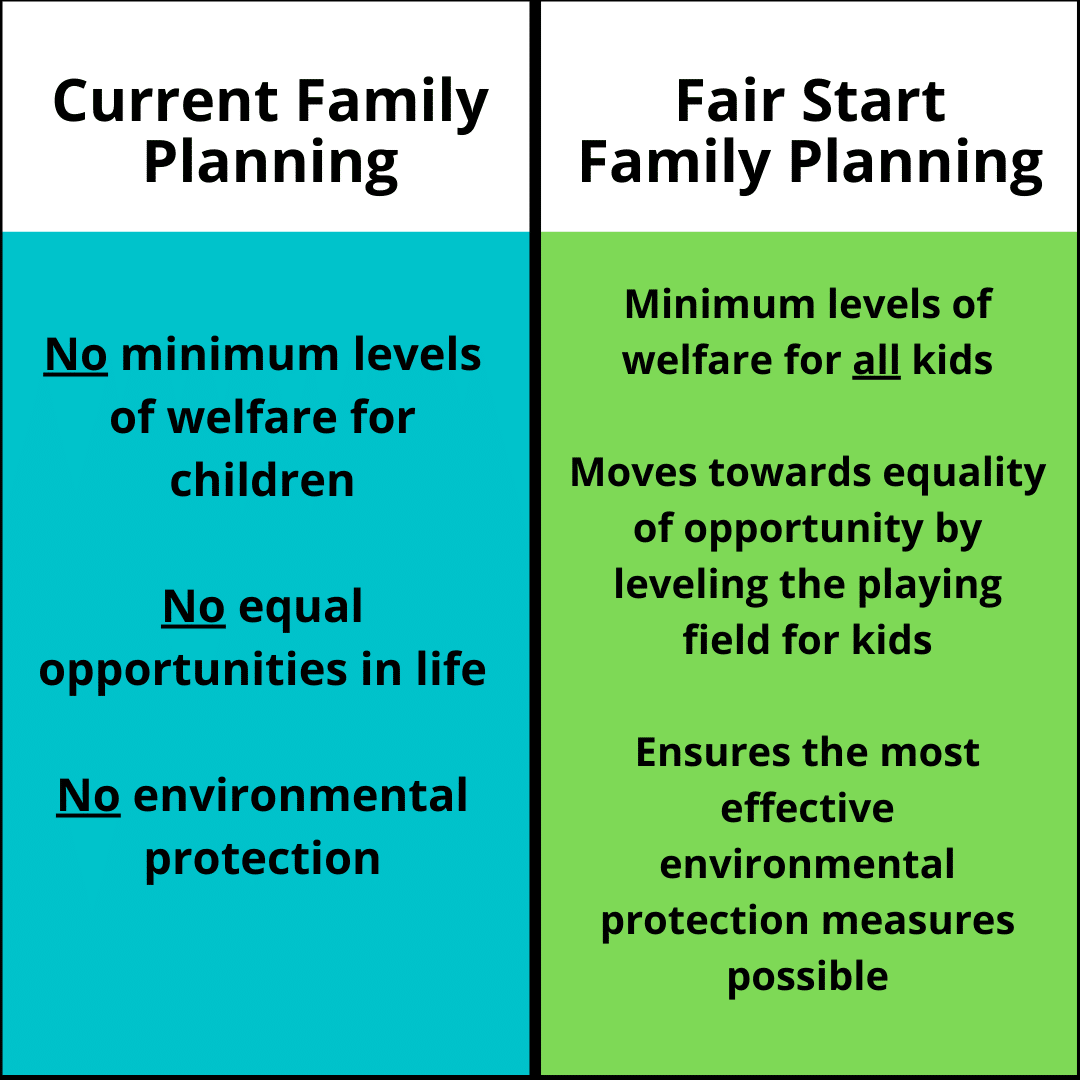In the wake of high-profile stories showing just how deep and intergenerational both racial and economic inequity run in the United States and elsewhere, many are flocking to show that they too are part of social justice reforms. They want systems of governance to be legitimate. Here are three simple questions to test how serious they are, and whether they are doing what’s most effective to protect the most vulnerable, all of our kids’ future, and ensure legitimate systems of democratic governance. The key is to see how these questions interrelate, and go to the core of what it means to be free.
They can help identify those who wish to constitute just communities, and those who wish to keep us in a states of illegitimate governance, or pre-constitutionality.
- Do they support family planning reforms that would give all kids a Fair Start in life, ecologically and socially? No social justice policy is remotely as effective as getting would-be parents and concentrations of wealth and power to work together to share resources to ensure birth equity. The staff at Having Kids routinely encounters people proclaiming to support social justice who also see it as their god given right to pass unearned privilege and wealth to their kids. That’s not social justice.
- Do they extend social justice to future generations, as well as nonhumans and their habitats, by supporting policies that promote smaller and more sustainable families measured against a zero baseline? Nothing does more to protect future generations, animals and the environment. And protecting the most vulnerable entities on the planet is the height of social justice.
- Do they support family planning reforms that restructure political systems so that future generations will have an effective voice in their democracies and governance? It’s wrong to think we live in a state of social justice where we have little or no control over the systems of rules under which we are forced to live. We can do better, though it will take generations to reverse systems of political oppression.

These questions may not be typical or popular. But the work of social justice is meant to liberate the most vulnerable, and that means looking ahead towards the entities most at risk and in need of liberation, regardless of what most people think. In this era have an amazing opportunity to change the world for the better. Don’t let ineffective approaches to social justice knock us off the path.

